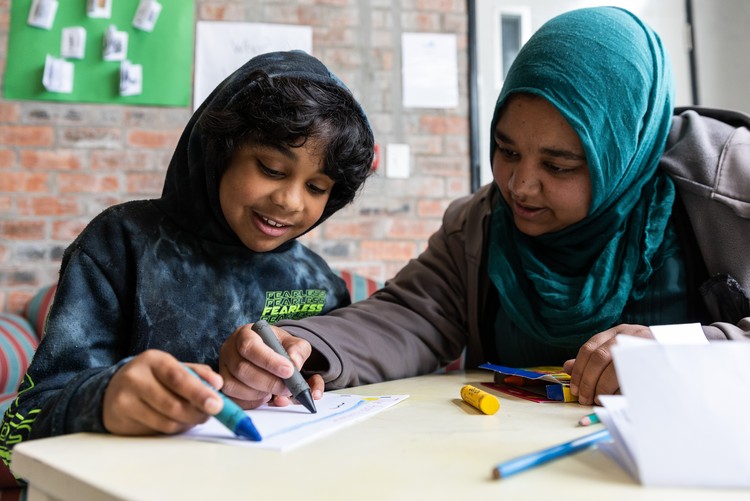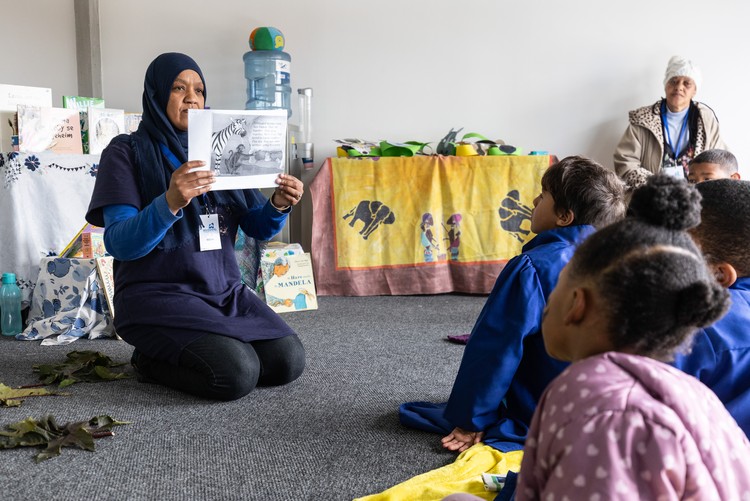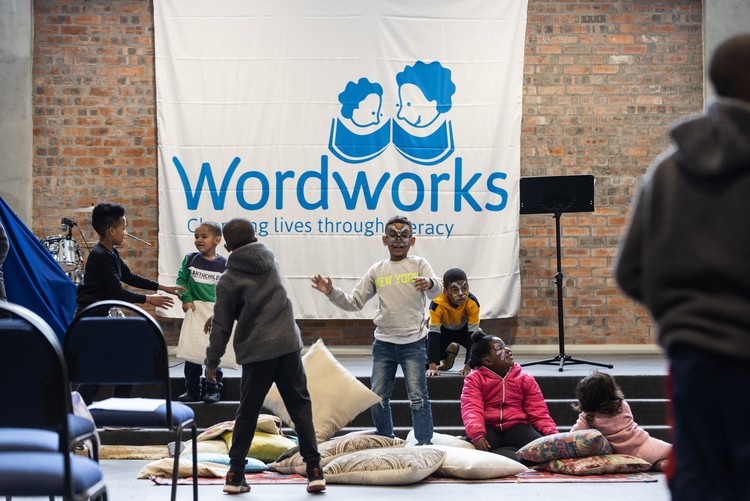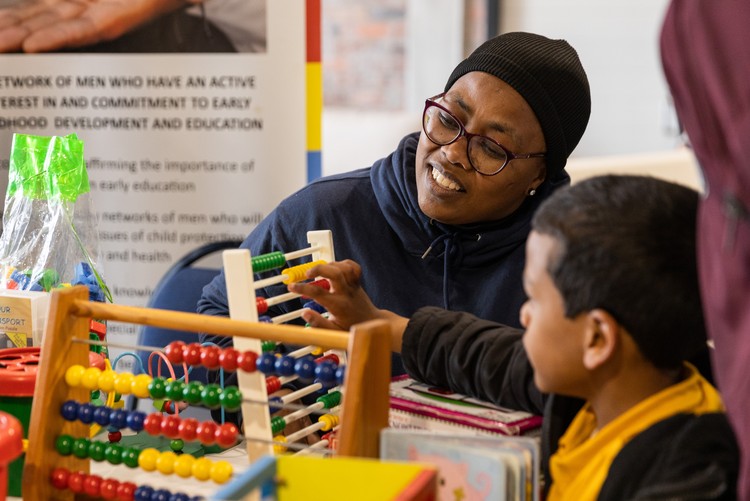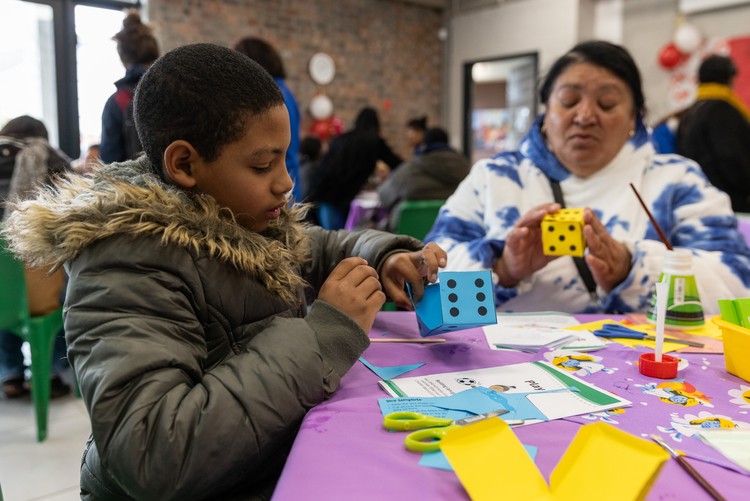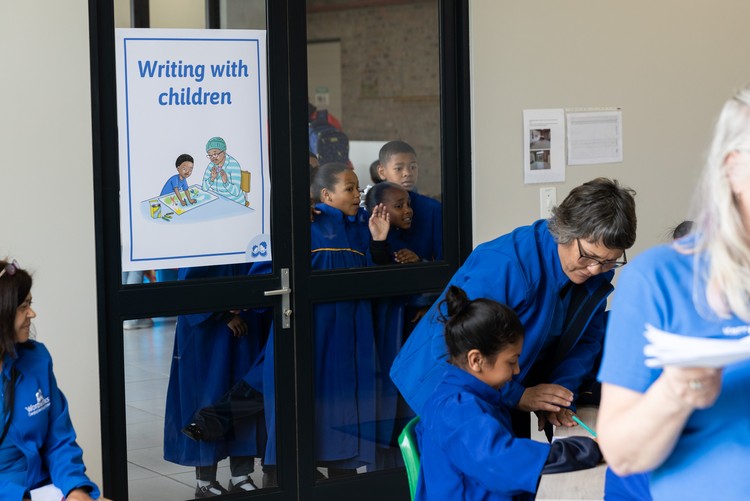Simple games help children learn to read
Even a cereal box can be a useful teaching tool
Nine-year-old Uthmaan and his sister Munashrah Blake from Grassy Park participate in a ‘writing with children’ workshop at the Early Literacy Festival hosted by Wordworks on 16 September. Photos: Ashraf Hendricks
A few hundred caregivers, teachers, parents, and children attended the Wordworks Word Early Literacy Festival on 16 September. The event highlighted early literacy and language development. Many of the participants came from communities on the Cape Flats such as Mitchells Plain, Khayelitsha, Grassy Park, Philippi and Elsies River.
In May 2023, the Progress on International Reading Literacy Study results revealed that 81% of South African grade 4 children cannot read for meaning. In 2016 it was 78%.
Wordworks, an organisation founded in 2005, works with a network of partners countrywide to bolster early literacy development in under-resourced communities.
Volunteer Mariam Petersen hosts an interactive storytelling workshop with children and parents.
On Saturday, several workshops were held, each to teach parents and caregivers games to help children improve their vocabulary. Some of the methods included creating picture cards, puzzles, dice games, and board games.
“We’ve got things that parents can easily find … they don’t have to buy anything,” said Faith Shabangu, a Wordworks literacy specialist.
She advised parents to not throw away cereal boxes. Rather use them to create board games.
The event aimed to inspire parents to be more involved in their children’s literacy development.
Munashrah Blake, a teacher from Grassy Park, hosted one of the workshops with her nine-year-old brother, Uthmaan. Blake said teaching literacy to her grade 2s and 3s involves encouraging them to use their imagination to bring their ideas to life. “You need them to take the lead and you should just be there as a guide,” she said.
She urged parents and teachers to be creative when teaching literacy. “With literacy, you have to find different ways. The same recipe doesn’t work with every child,” said Blake.
Bukiwe Genu of Sikhula Sonke Early Childhood Centre hosts playgroups for children in Khayelitsha. She was one of the many literacy vendors who presented their work at the event.
Bukiwe Genu of Sikhula Sonke Early Childhood Development Centre said they host playgroups for children in Khayelitsha. She said they mostly cater for ages three to six, whose parents or guardians are unemployed, and who depend on the child support grant.
She said many of the children live in shacks. “Some of the informal settlements are not safe for the kids,” she said. This is why they try and create safe spaces at playgroups for these children.
Ten-year-old Kyle Hartley and his grandmother Wilhelmina Hartley from Elsies River create colourful paper dice during the ‘resource making with parents’ workshop.
Mammuso Makhanya, executive director at Wordworks, said the festival wanted to show the vital role “ordinary play” has in “understanding the importance of early literacy”.
Nangamso Mtsatse, a Wordworks board member, said the country needs this kind of intervention. “Literacy and numeracy are the currencies which enable you to participate in the economy. If you don’t have basic literacy skills, that impacts your academic trajectory.”
Learners from the Delta Primary school choir near Steenberg performed during the festival.
Next: Mining department refuses West Coast prospecting bid
Previous: Victim of wrongful arrest gets R2.6-million from Minister of Police
Letters
© 2023 GroundUp. This article is licensed under a Creative Commons Attribution-NoDerivatives 4.0 International License.
You may republish this article, so long as you credit the authors and GroundUp, and do not change the text. Please include a link back to the original article.
We put an invisible pixel in the article so that we can count traffic to republishers. All analytics tools are solely on our servers. We do not give our logs to any third party. Logs are deleted after two weeks. We do not use any IP address identifying information except to count regional traffic. We are solely interested in counting hits, not tracking users. If you republish, please do not delete the invisible pixel.

